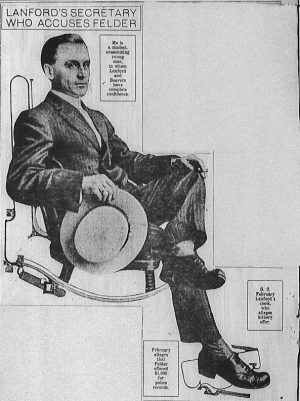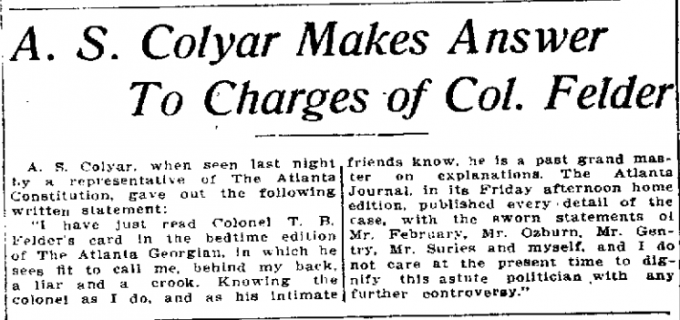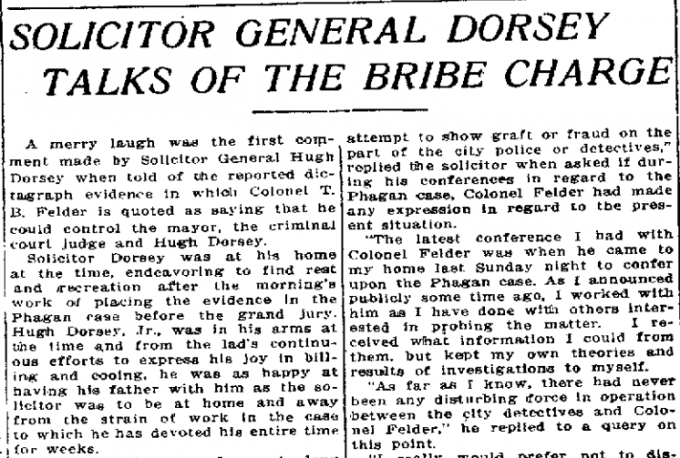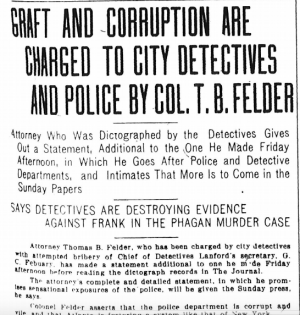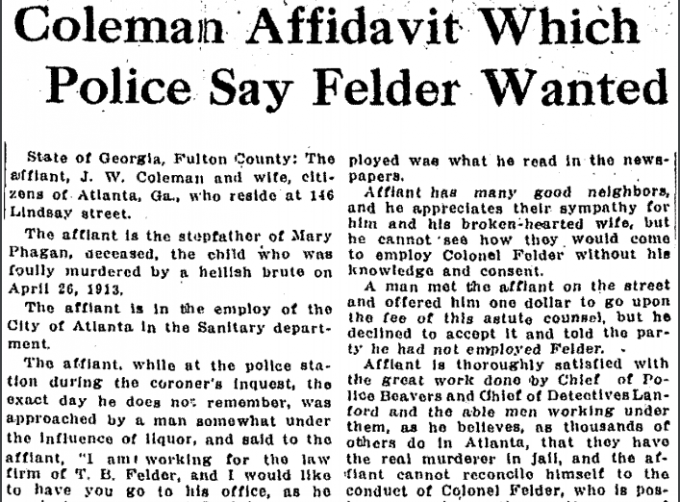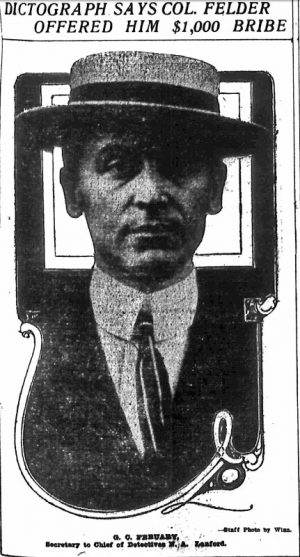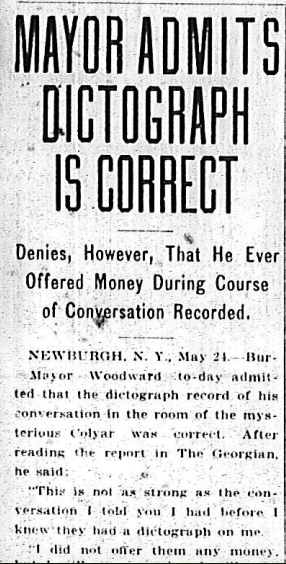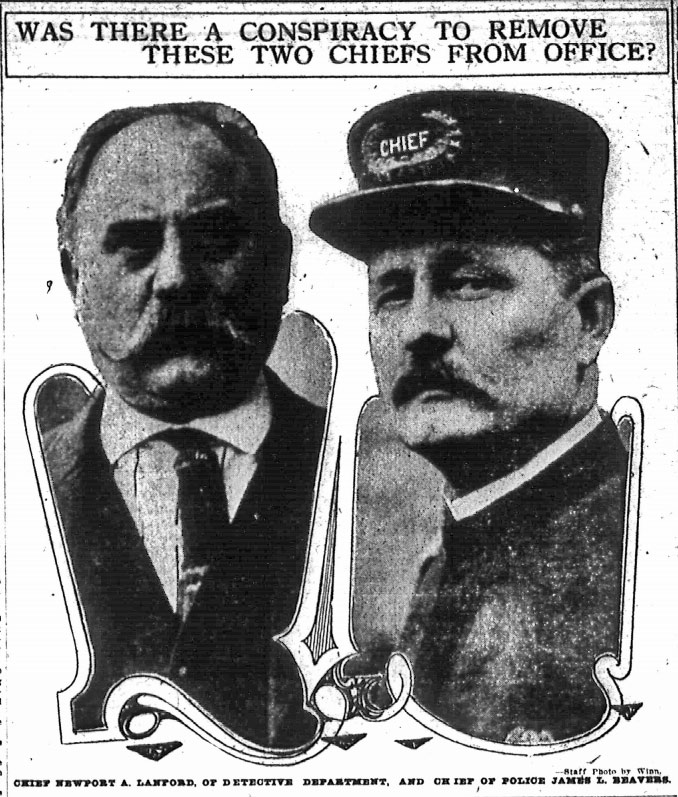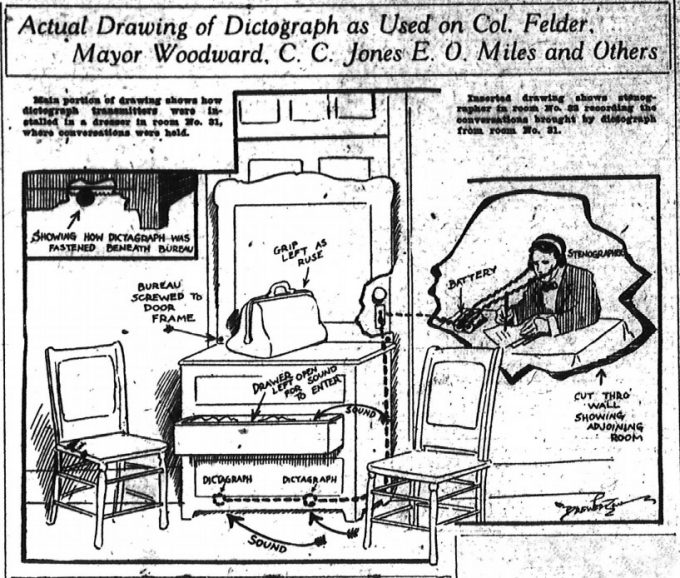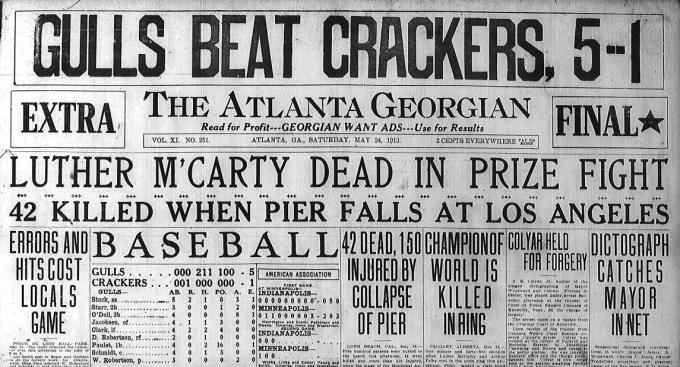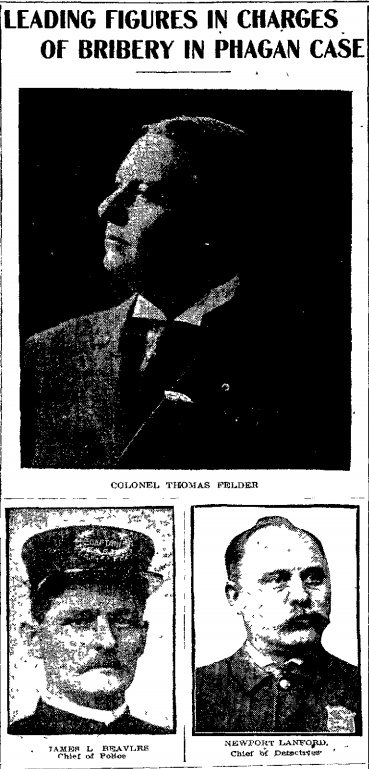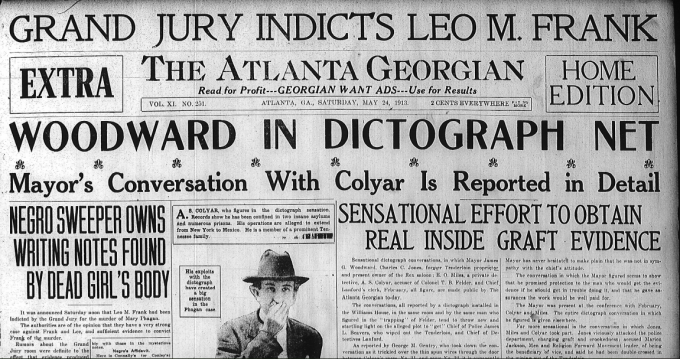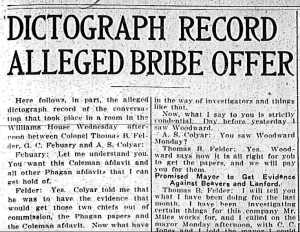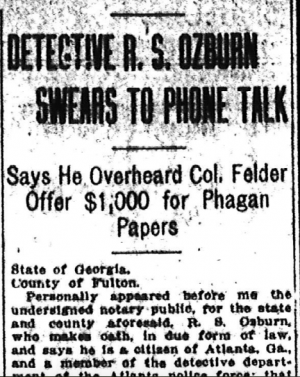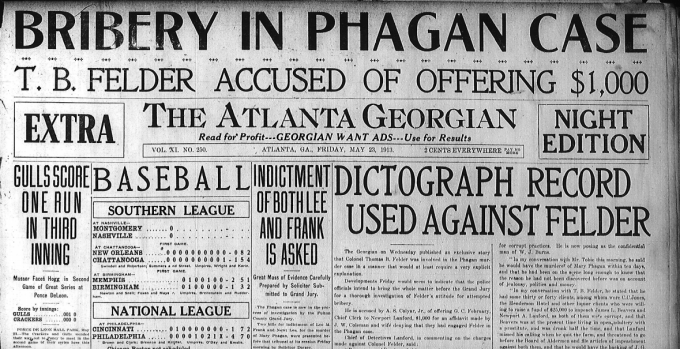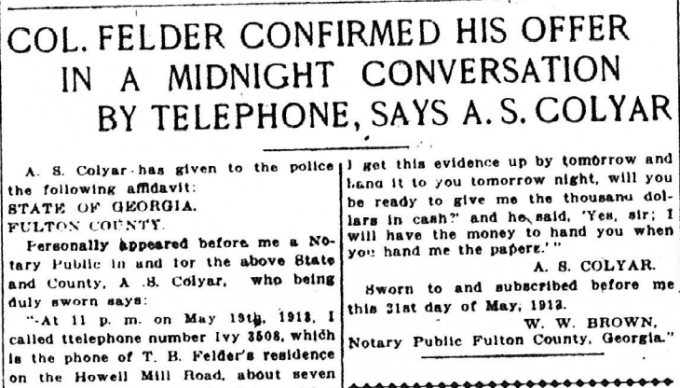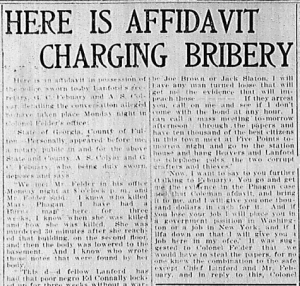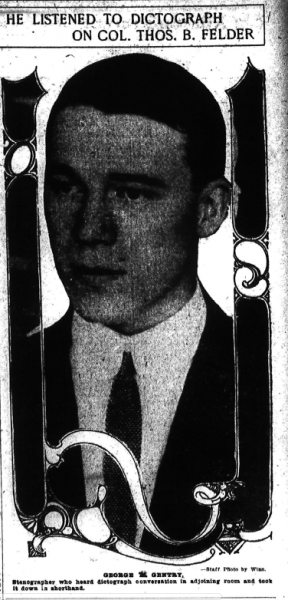
George M. Gentry, stenographer who heard dictograph conversation in adjoining room and took it down in shorthand.
Another in our series of new transcriptions of contemporary articles on the Leo Frank case.
Atlanta Journal
Saturday, May 24th, 1913
Proprietor of “Rex” Near-Beer Saloon and Private Sleuth Are Quoted as Having Negotiated With Febuary for Papers in Phagan Case—Jones Was Very Cautious in His Utterances
MILES WAS QUITE POSITIVE MAYOR WOODWARD WOULD SEE TO IT THAT FEBUARY WAS PROTECTED
Following the alleged dictographed conversations of Colonel Thomas B. Felder and Mayor Woodward Wednesday afternoon an engagement was made by A. S. Colyar for Charles C. Jones, proprietor of the “Rex” near-beer saloon, and E. O. Miles, a private detective, to meet G. C. Febuary, secretary to Chief of Detectives N. A. Lanford, in room No. 31 of Williams House No.2, to further discuss the subject of extracting certain papers from the safe of the chief of detectives.
This alleged discussion was also dictographed, and from the dictograph record it appears that Jones was too foxy for the ingenious machine. He was apparently very guarded in his utterances, although he took occasion to attack Police Chief Beavers and Marion Jackson, of the Men and Religious Forward Movement, for their part in closing up the restricted district.
Miles was more frank in his conversation. The dictograph record quotes him as agreeing to meet Colyar and Febuary outside Fulton county for the transfer of the papers and assuring the latter that he would be protected by Mayor Woodward.
THE DICTOGRAPH RECORD.
Following is the dictograph record on the Miles-Jones-Febuary-Colyar conversation:
The following conversation occurred in room No. 31 at Williams House, No. 2, 34-36 N. Forsyth street, Atlanta, Georgia, Wednesday evening between eight and nine o’clock, between C. C. Jones, E. O. Miles and A. S. Colyar:
Colyar: It has been very warm today, hasn’t it?
Miles: Yes, it has. I asked Mr. Felder if you mentioned Mr. Jones’ name to him and he said no. Continue Reading →

